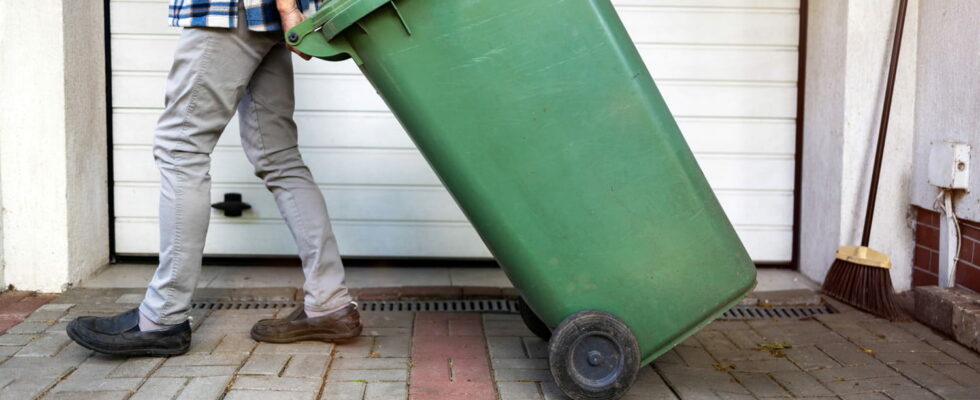These new bins will be obligatory for many French people. And be careful, they will have a particularity which may cost some households dearly…
From 2025, waste collection will change for 25 million French people. If the composting of food waste has already been put in place, another novelty is emerging with the arrival of new bins which are compulsory for many households. Their distinctive sign: an electronic chip. They will be equipped with sensors which will calculate the frequency with which your household waste is collected, and you will pay a tax based on the number of collections.
This change is part of a waste reduction policy with the Energy Transition law. The government’s objective: to equip 25 million French people with this new trash can by the end of 2025. Some already are, the device having been tested in several areas of the country since 2021. For the moment, this only concerns trash cans. for household waste, sorting waste is not affected.

How does it work? The bins in the municipalities concerned will be equipped with an RFID (Radio Frequency Identification) chip. The chip, usually placed on the bin or lid, contains a unique identifier linked to the housing. During collection, the garbage truck, equipped with a reader, scans the chip to record the number of times it will collect your trash.
This system allows you to calculate the number of collections carried out per year, and if necessary to charge an incentive tax if you exceed the number of collections planned by the system. The goal: to encourage you to limit waste. The less waste you produce, the less you pay.
Concretely, how much will this cost? Everyone already pays two annual fixed taxes for household waste:
- The household waste removal tax (TEOM),
- and the household waste removal fee (REOM).
Good news, for people equipped with this new device, this fixed part will decrease. But this reduction will be offset by the new incentive tax, the amount of which may increase. You will therefore have a fixed part and a variable part depending on the number of collections or the quantity of waste collected. The price of this tax is set by the local communitiesand varies from one municipality to another.
Here is a concrete example. This new incentive fee was implemented in the south-east of the Marne according to France 3 regions. In the municipalities concerned, each household pays a fixed share (for 18 collections) of between €100 and €270 per year (depending on the number of people in the household). For each additional collection, a tax is imposed:
- €1.20 for a bin for 1/2 people (120 liters);
- €1.80 for a bin for 3/4 people (180 liters);
- €2.40 for a family bin (240 liters);
- €6.60 for a collective bin (660 liters).
Beyond the 27th passage, this tax is increased and goes from 3 to 15 euros depending on the size of the trash can. If you take out your trash once every 3 weeks, you will only have to pay the fixed part. If you exceed, the incentive tax will apply. For example, a family of 4 people who take out their 180 liter bin once a week will have to pay a fixed fee of 210 euros then 1.80 euros per passage up to 8 passages then another 5 euros more for any additional bin collected .
